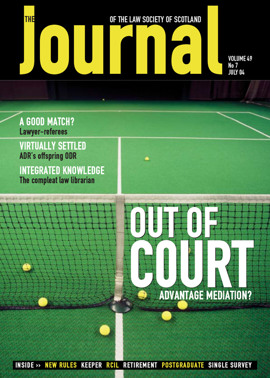Opinion: Thembe McInnes
 Does it matter that I am Black?
Does it matter that I am Black?
As a society our first instinct is to say no, of course it doesn’t. We tell our children that it doesn’t matter what colour their skin is, that kindness and love are all that matter. Our universities are melting pots into which students of diverse ethnicity, race, gender and socio-economic background are welcomed in the hope that they emerge with a wealth of knowledge, experience and friendship. Our graduates embarking on their careers are reassured that employee selection is about competency, demonstrable experience, behaviours and cultural fit. Race does not come into it.
We develop our CSR agendas, our personal development programmes, our business development networks, and our people to reflect the culture of our business. Are we merely providing our unconscious bias a warm blanket under which to take cover? Because what do we mean by culture and cultural fit? Do we mean a culture where race doesn’t matter, where we don’t see colour? If so, does it follow that we also don’t see the challenges and limitations faced by people of colour?
As lawyers we are perhaps more cautious in our discussions, as we are aware of how easily a word can be misconstrued. So, we steer away from these sometimes difficult and almost always awkward situations. We strive for equal opportunity: legal education and qualification are certainly levellers, but social class, private education, family connections, access to opportunities and legal work experience still heavily influence the path to the profession. While there has been an increase in the number of BAME lawyers in Scotland and a more general openness to diversity within the profession, we need to see that race does matter, and we all need to get comfortable talking about it.
This reticence to be open is not exclusive to white peers. I know that in my effort not to stand out more than I already do, my accent has been anglicised, my Zimbabwean expressions softened, and my natural Afro has not been seen since 1995! I have let clear injustices go unchecked as I have been afraid of impact on my career. I have had to laugh off the “my tan will never be as good as yours” banter, as calling people out on it would be laughable. But would we chuckle in the same way if a male counterpart compared his chest size to a woman’s?
I don’t want to be seen as the “angry Black woman” (my kids may argue they often see me as one!), but I need it to be OK to be the angry Black woman. I need it to be OK that you don’t know how to pronounce/spell my name. I need it to be OK for prospective law students to go to a school where family heritage and private benefactors are not a thing. I need it to be OK for invitations to networking events to be sent regardless of faith. Presence is surely more important than the contents of the glass in hand.
I need everyone to get comfortable being uncomfortable. As legal professionals, we need to own our lack of understanding and experience. Because it is in this space that we listen, we learn, and we begin to empathise. And when we know better, we do better. Our population is changing; BAME culture is forming an intrinsic thread in the tapestry of being Scottish. So too it should be reflected in the discussions, opportunities and progression of our BAME solicitors. Our profession needs to acknowledge that diversity and inclusion means nothing unless we act to engage more with our BAME peers.
So, does it matter that I am Black? Yes. It matters because despite the challenges, I am here. I am in that collective of lawyers; no longer is it an exclusive club. The Law Society of Scotland’s Profile of the Profession in 2018 gave real insight to the issues that BAME solicitors deal with, and as more people of colour share their experiences, we see there is still work to be done. The steps the Society is taking to address the imbalance of representation need to be replicated across the profession, which must persevere in recognising and removing the barriers to entry and progression that BAME solicitors face.
We can then comfortably promote our diversity and inclusion, knowing what it really means. Our future lawyers will be better placed to recognise and identify role models, to connect with the culture of our organisations, to see themselves and their communities represented in the profession. As we celebrate 100 years of women in law I am optimistic that BAME lawyers too can take hope that in the years to come, the Scottish legal profession will be able to celebrate its diversity and inclusion knowing that it didn’t just learn about the Black Lives Matter movement: it acted.






